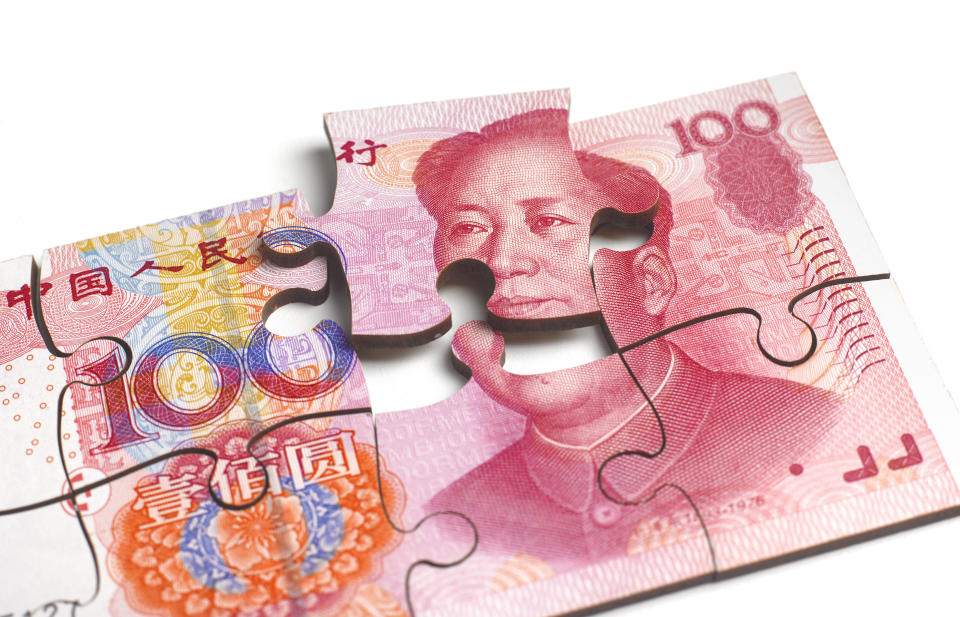The irony of calling China a currency manipulator
The U.S.-China trade tensions have been running hot, but the feud was taken to the next level when the U.S. Treasury Department labeled China as a currency manipulator late Monday.
This comes on the heels of China’s central bank, the People’s Bank of China’s (PBOC), allowing the value of its yuan to weaken to 7 per dollar. The event followed President Donald Trump’s announcement that the U.S. would be slapping 10% tariffs on the remaining $300 billion worth of Chinese goods effective September 1.
However, the U.S. Treasury’s decision to designate China a currency manipulator is more about sending a message, and if anything, the yuan would’ve been even weaker without policy support, according to Capital Economics Senior China Economist Julian Evans-Pritchard.
“Ironically, the recent weakening of the renminbi was triggered by the PBOC halting its efforts to defend 7.00 against the dollar and allowing market forces to push the currency down,” Evans-Pritchard said in a note to clients Tuesday. “The US Treasury’s argument that China is manipulating its exchange rate to ‘gain an unfair competitive advantage’ is a bit of a stretch.”
The U.S. Treasury’s most recent foreign exchange report noted that China only met one of three criteria for being labeled a currency manipulator. There was no evidence to support the claim that China had been intervening to push down the value of the yuan. The PBOC also released a statement stating that China does not engage in “competitive devaluation” and adheres to a market-determined exchange rate system.

Nevertheless, “facts matter less than optics at this stage. By explicitly badging and timing the renminbi’s breach through 7.00 as a response to US tariff threats, the PBOC has given credence to the idea that it is weaponizing the currency,” Evans-Pritchard argued.
As the trade war further escalated to a currency war, the U.S. Treasury’s next steps either have to involve direct negotiations with China or indirect negotiations through the International Monetary Fund (IMF). Evans-Pritchard explained that China is unlikely to engage in talks with the IMF, and thus, the U.S.-China relationship will likely sour even more.
“With no off-ramp in sight, we continue to think that Trump will eventually place a 25% tariff on all imports from China. Meanwhile, China is likely to consider additional countermeasures, including further currency depreciation,” Evans-Pritchard said.
—
Heidi Chung is a reporter at Yahoo Finance. Follow her on Twitter: @heidi_chung.
More from Heidi:
LeBron James–backed pizza chain is America’s favorite: survey
America’s favorite and least favorite fast-food burgers: survey
Beyond Meat sales beat expectations, boosts full-year outlook
Read the latest financial and business news from Yahoo Finance
